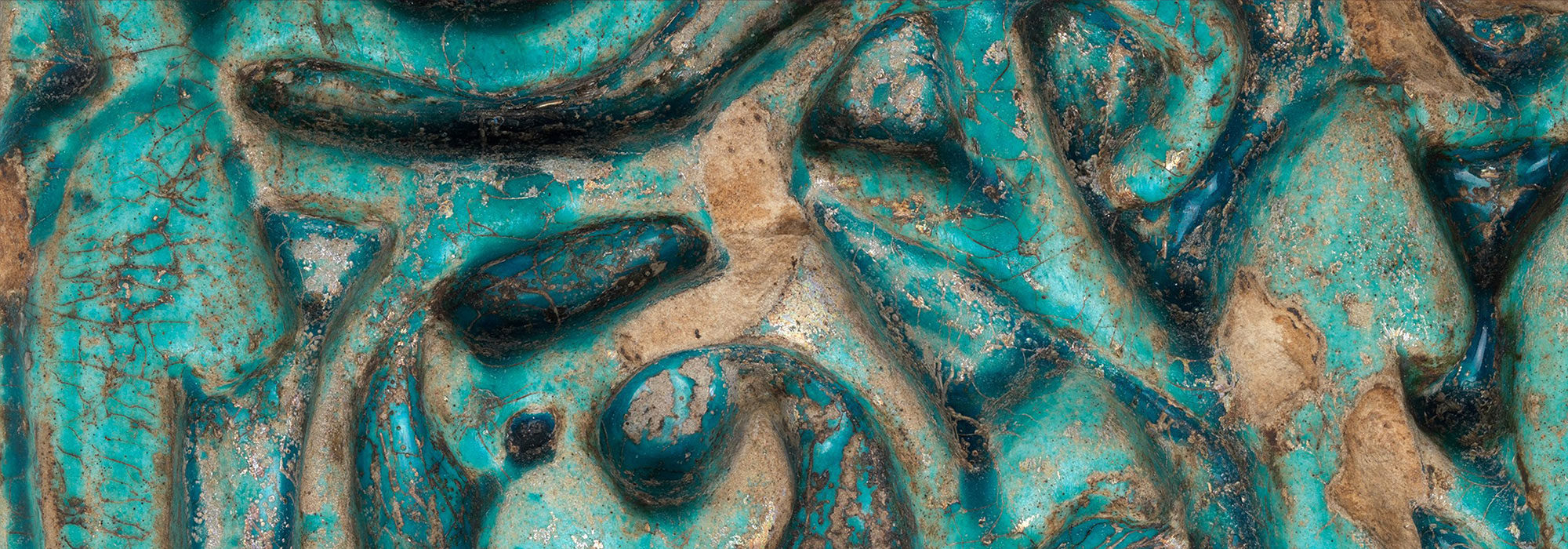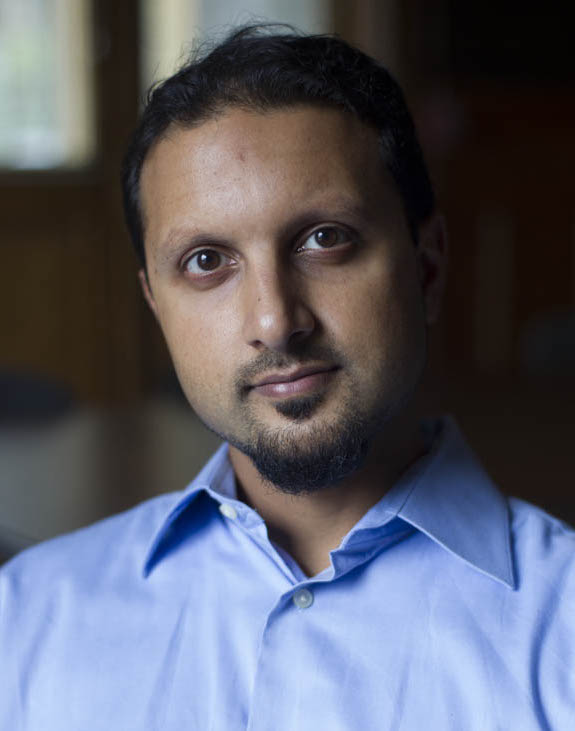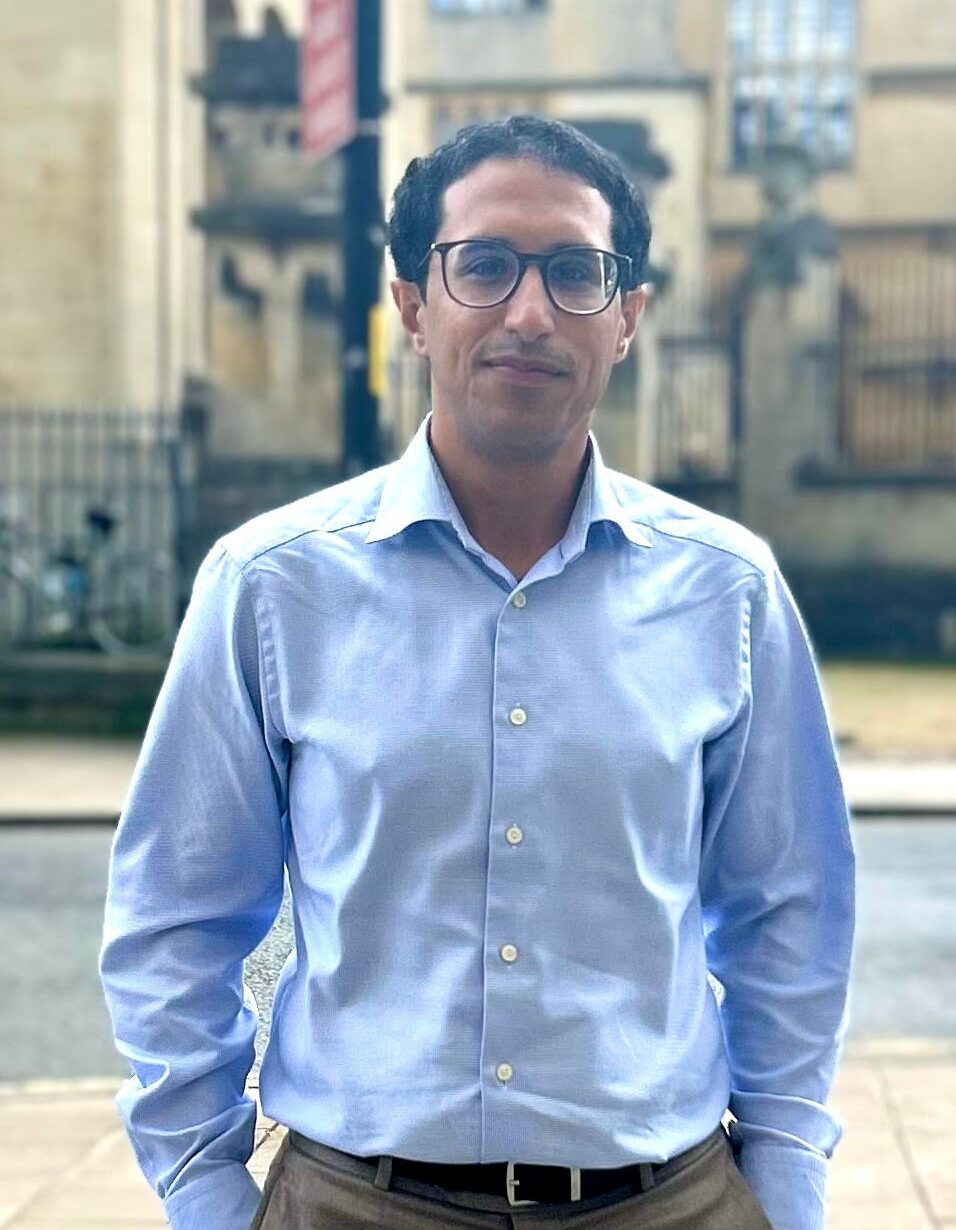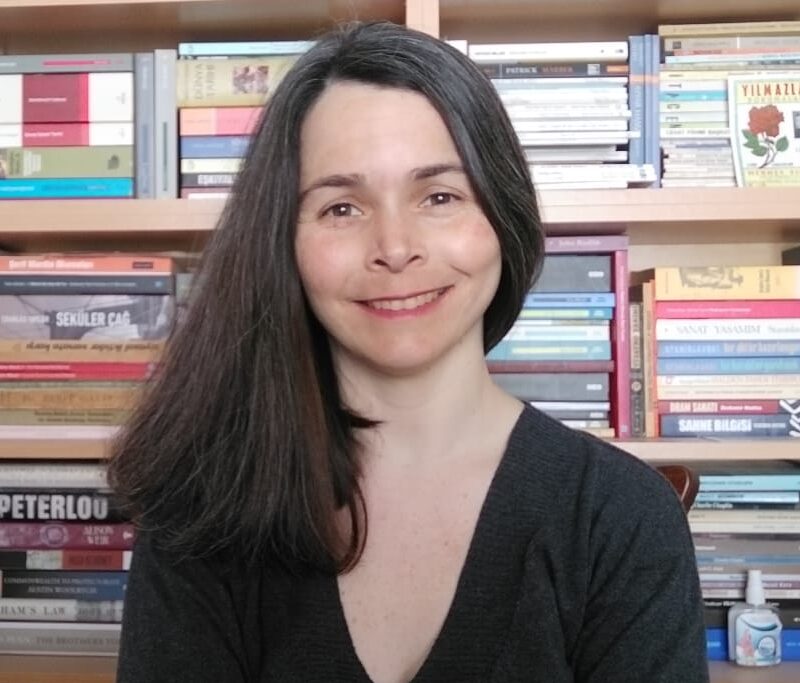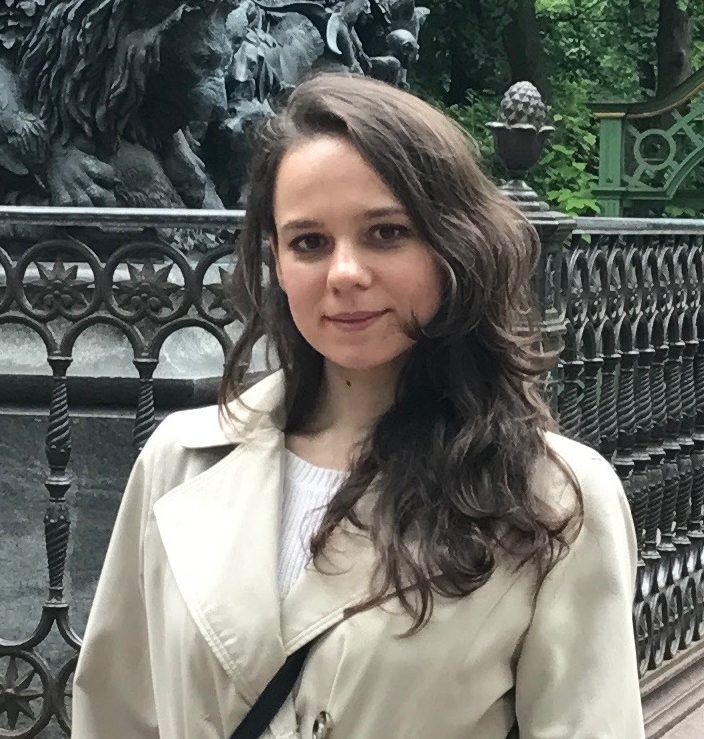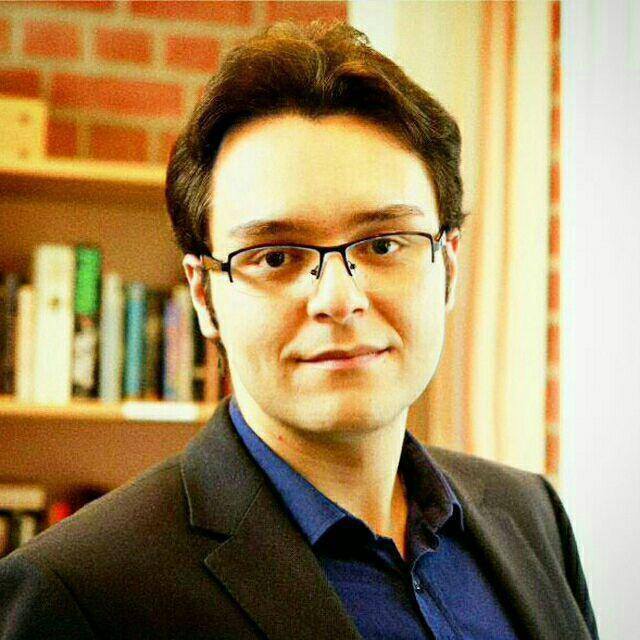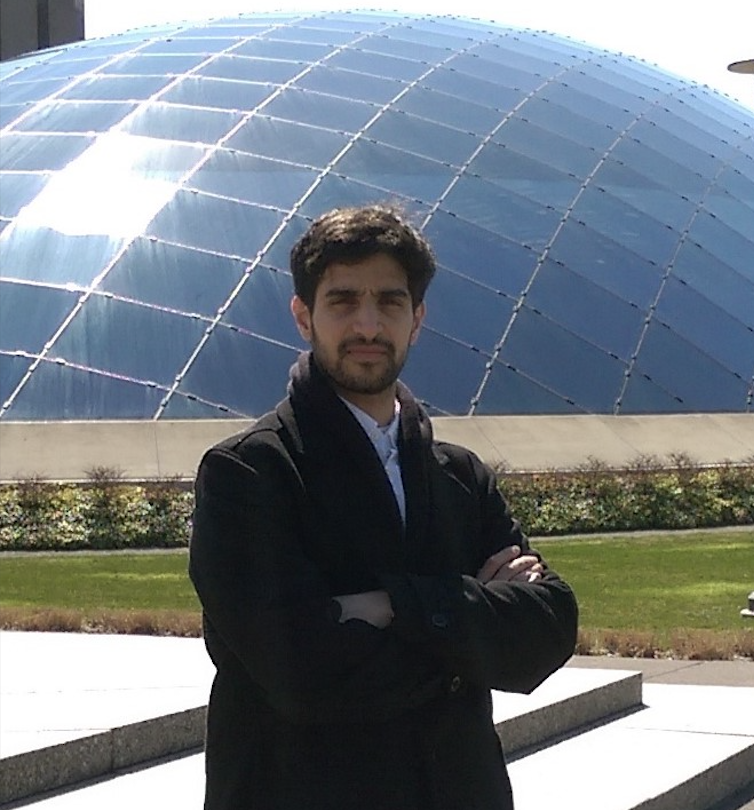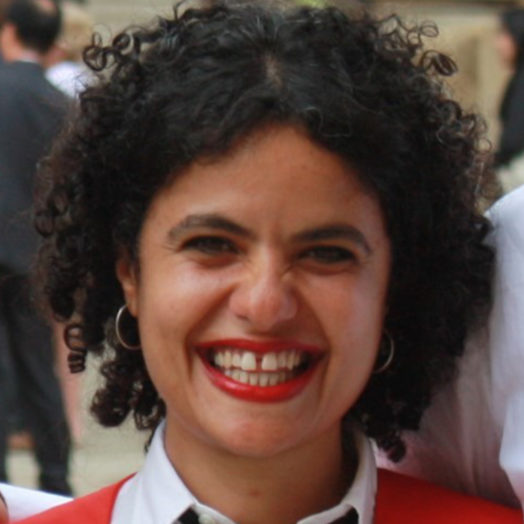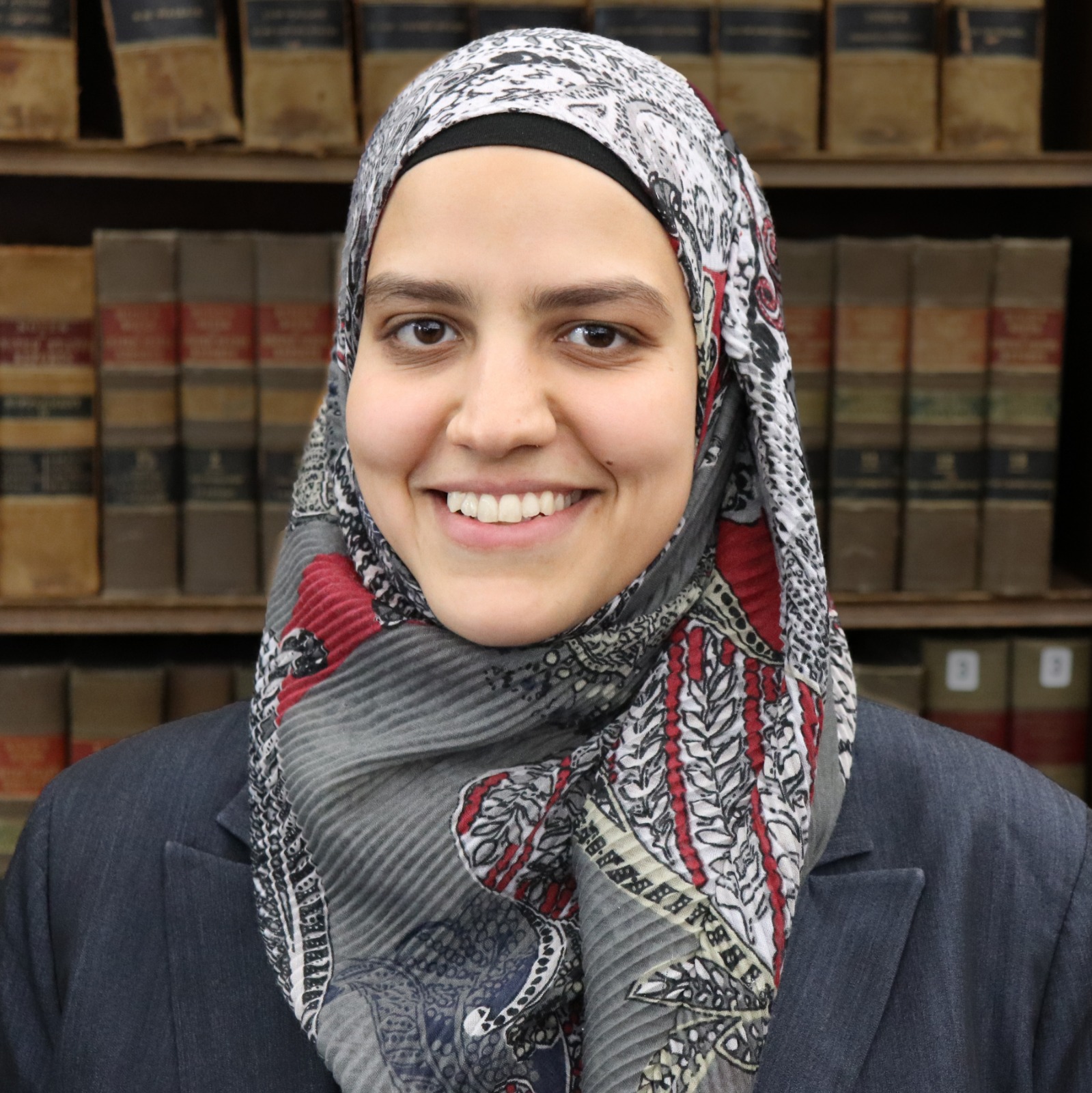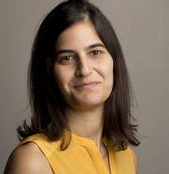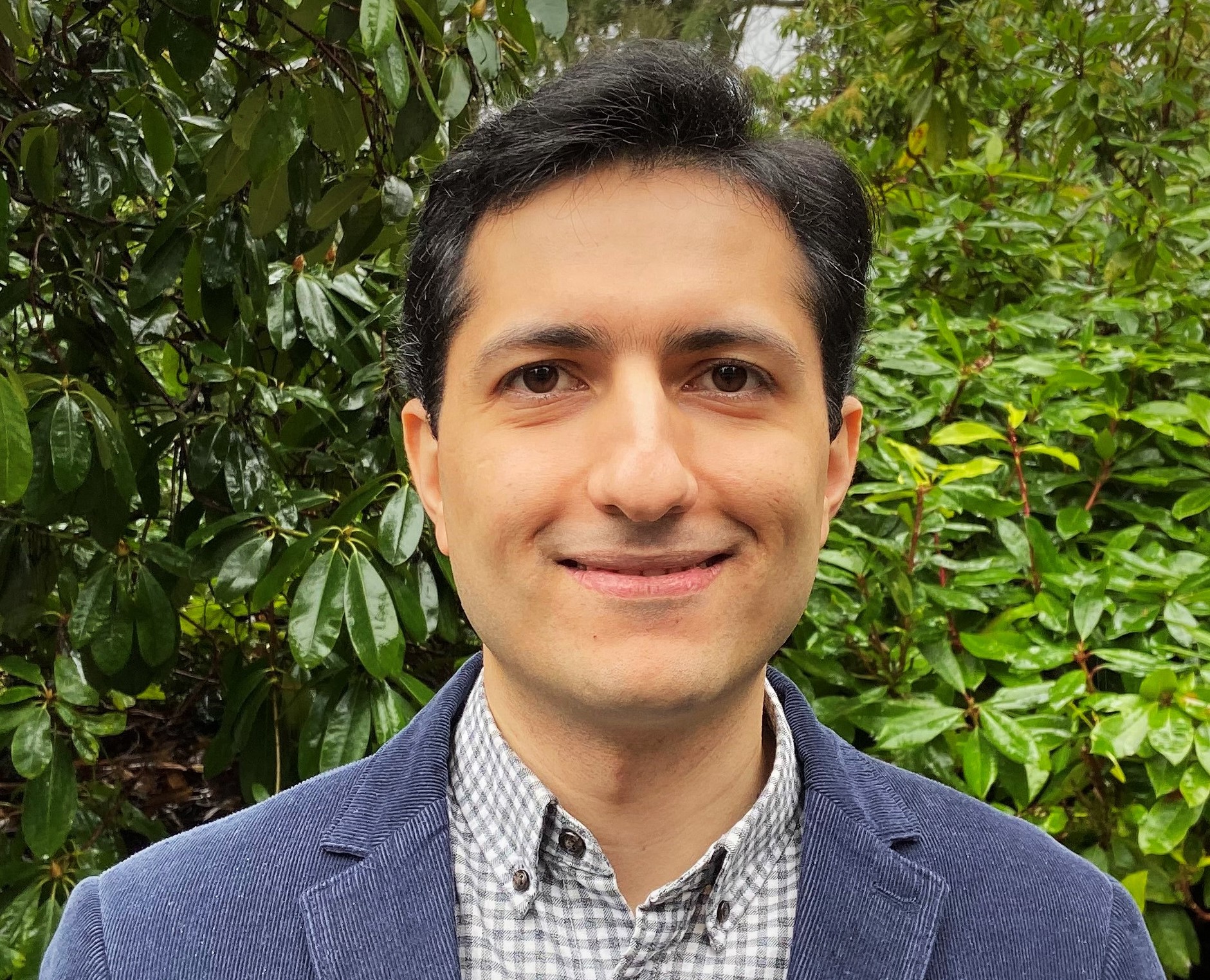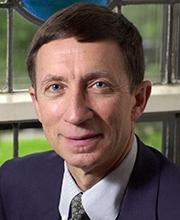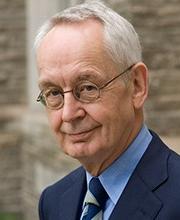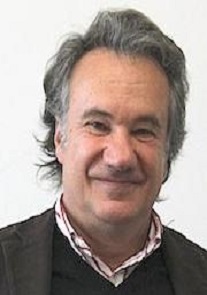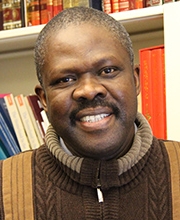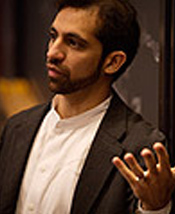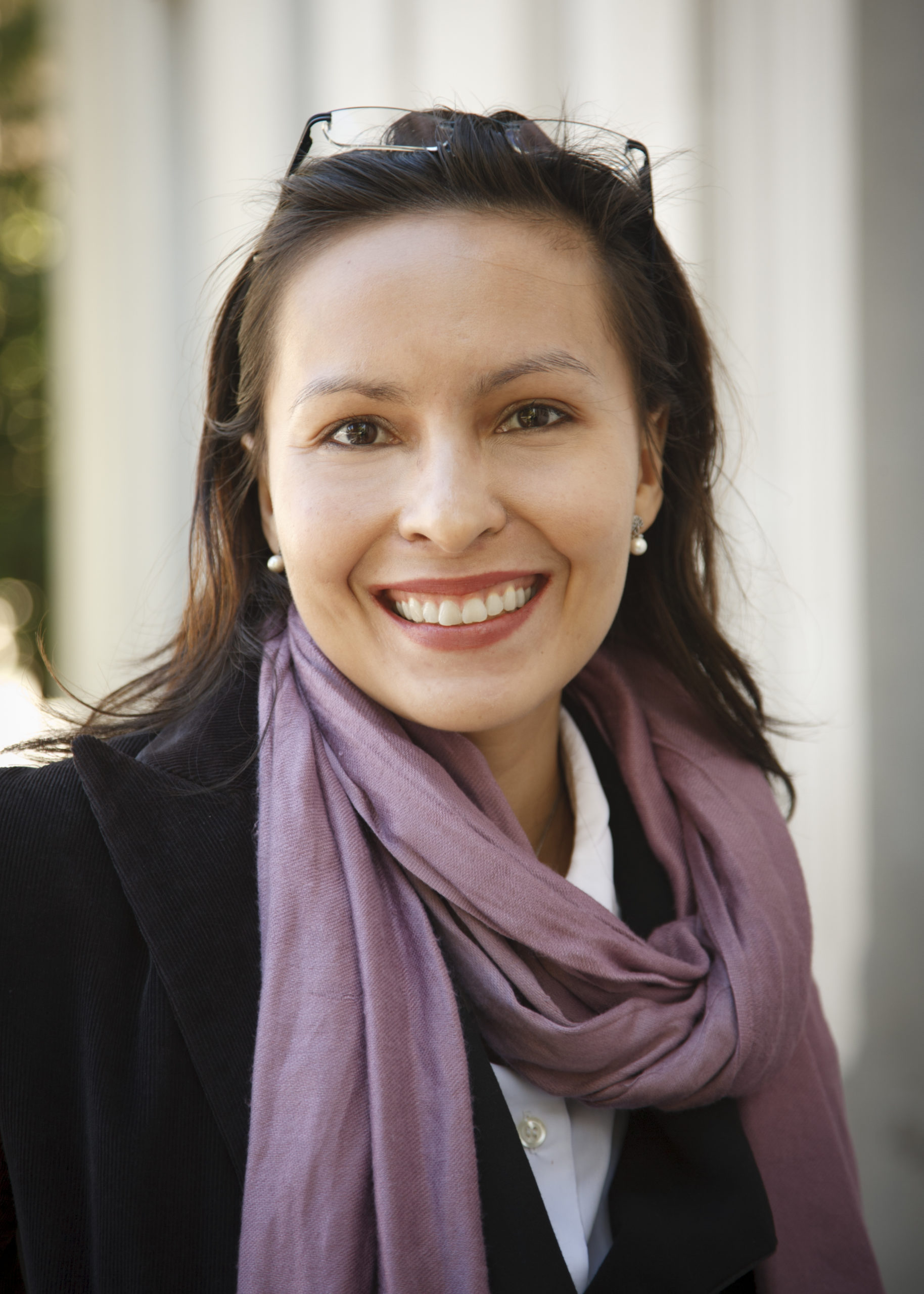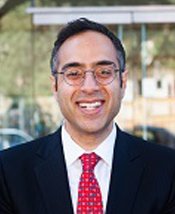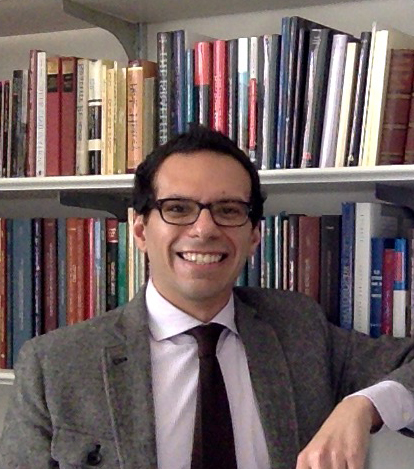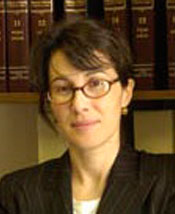Research Fellows

Faiz Ahmed (PhD, UC Berkeley; JD, UC College of Law, San Francisco) is currently Joukowsky Family Distinguished Associate Professor of Modern Middle Eastern History at Brown University. Ahmed’s primary specializations are the late Ottoman Empire, Afghanistan, and the British Empire, as well as diasporic communities tied to the region we today call the Middle East. His core research and teaching engage questions of human mobility, travel, and migration; social histories of Islamic law and learning; and the intersections of constitutionalism, citizenship, and diplomacy.
Ahmed’s first book, Afghanistan Rising: Islamic Law and Statecraft between the Ottoman and British Empires (Harvard University Press), was awarded the American Historical Association’s John F. Richards Prize in 2018. His current research explores historical ties and engagements of the Ottoman Empire in the Americas, with a focus on social, economic, and legal connections to the United States and Canada during the long nineteenth century. His published articles have appeared in journals of law, history, and Middle East Studies, including Comparative Studies of South Asia, Africa, and the Middle East; Global Jurist; International History Review; International Journal of Middle East Studies; Iranian Studies; Jadaliyya; Osmanlı Araştırmaları (Journal of Ottoman Studies); Journal of the Ottoman and Turkish Studies Association; and Perspectives on History. Dr. Ahmed is also co-organizer with Brown University colleagues Michael Vorenberg, Emily Owens, and Rebecca Nedostup of the Brown Legal History Workshop and the Brown Legal Studies collaborative.

Mohammed Allehbi is the PIL-LC Research Fellow at the Program in Islamic Law at Harvard Law School and the Library of Congress for the 2023–2024 academic year. He specializes in law and governance in the Islamic Near East and the Mediterranean during late antiquity and the Middle Ages. After earning his master's degree in Middle Eastern studies from the University of Chicago in 2014, he received his doctorate in history from Vanderbilt University in 2021, where he was a senior lecturer in the Department of Classical and Mediterranean Studies. His first article, “It is Permitted for the Amīr but not the Qāḍī’: The Military-Administrative Genealogy of Coercion in Abbasid Criminal Justice,” was published in Islamic Law and Society in the fall of 2022. It explores the emergence and rationalization of coercive interrogations in late antique and early medieval Islamic criminal justice. Currently, he is working on his first monograph about the formation of Islamic criminal justice and policing in the Near East and the Mediterranean between the eighth and twelfth centuries.

Fatma Gül Karagöz is an assistant professor of legal history based at Galatasaray University Faculty of Law. Since working on her MA thesis on the codes of the early modern Ottoman Empire and particularly on the New Code (Kanunname-i Cedid), a compilation of fatwas and codifications on land ownership, Fatma has been interested in land law in the Ottoman Empire. Her works are mostly focused on the property relations on agricultural land and the land usufruct in legal theory and practice. Her current research is based on the application of property law (land law) in the second half of 18th-century Antioch by focusing specifically on the exercise of property rights by women. She received her Ph.D. in Public Law from İstanbul University (2018), MA in Ottoman History from İhsan Doğramacı Bilkent University (2010), and BA in Law from Galatarasay University Faculty of Law (2005).

Dilyara Agisheva received an undergraduate degree in Middle Eastern Studies and Political Science from UCLA and an M.A. in Middle Eastern, South Asian, and African Studies from Columbia University. As a Ph.D. student at Georgetown University, she specialized in Islamic legal studies and Ottoman history. In August 2021, she defended her doctoral thesis entitled “Entangled Legal Formations: Crimea Under Russian Rule in the Late Eighteenth and Early Nineteenth Centuries.” Her doctoral research was supported by scholarships and grants, including the Heath W. Lowry Dissertation Writing Fellowship of Distinction from the Institute of Turkish Studies and the Fulbright-Hays Doctoral Dissertation Research Fellowship. Dilyara was also the inaugural PIL-LC Research Fellow at the Program in Islamic Law.

Dr. Bahman Khodadadi is a legal scholar, currently serving as a Research Associate at Yale Law School. He completed his PhD on “On Theocratic Criminal Law” at the University of Münster in 2021. As valedictorian of his master’s degree program in Tehran, he was invited by the University of Münster, Germany, to come as a visiting fellow. Dr. Khodadadi went on to pursue a doctorate at the university and his dissertation is under contract with Oxford University Press. At the University of Münster, he graduated with highest distinction (summa cum laude), received the “Harry Westermann Award”, an annual Law School award granted for best doctoral dissertation and twice won DAAD awards (in 2016 and 2023). His research interests include criminal law theory, Islamic jurisprudence, sociology of law, Islamic law history, and Shiite jurisprudence. He has published and translated many articles and held lectures in European countries such as Germany, Switzerland, Italy, and Ireland.

Sultan Mehmood is an Assistant Professor of Economics at the New Economic School of Moscow and a research affiliate at the Harvard Law School’s Program in Islamic Law. He is also a faculty research fellow at Centre for Economic Research in Pakistan (CERP) and Pakistan Institute of Development Studies (PIDE) in Pakistan.
Professor Mehmood is engaged in pioneering research on judicial reforms in the Global South, with a particular focus on his home country, Pakistan. His research methodology involves harnessing large datasets and careful attention to legal theory to provide insights into reforming the judiciary, promoting political rights, with a specific emphasis on studying the prerequisites for establishing the rule of law within societies. His work has been accepted or published in prestigious scientific outlets, including Nature, American Economic Journal: Applied Economics, The Economic Journal, and the Journal of Development Economics.
Professor Mehmood will be responsible for assisting in the acquisition and digitization of collections of judgments dating back to the country's independence in 1947. This effort is part of the larger project to create an online Resource Database for judicial decisions in Pakistan, which will also include the development of related AI and training tools and research papers.
Website: sultanmehmood.info
Twitter: @mrsultan713

Ali Rida Rizek is a Research Editor at the Program in Islamic Law. He received his PhD, Arabic and Islamic Studies - University of Göttingen, 2021) is a scholar of social and intellectual history of Islam, with special focus on Twelver Shi’ism. His research focuses on the history of Islamic law, Qur’anic studies, Arabic literature, and classical Islamic education and his dissertation (2021) examines the life, work, and impact of two early Imami legal scholars, namely Ibn Abī ʿAqīl al-ʿUmānī and Ibn al-Junayd al-Iskāfī (both flourishing in the 4th/10th century). Rizek has taught at the American University of Beirut (AUB), the Lebanese American University (LAU), the University of Leiden, the University of Göttingen, and the University of Bayreuth in Germany and has published studies on hadith, legal history, and the classical Islamic ethical discourse. He received his BA and MA in Arabic Language and Literature from the American University of Beirut (AUB) in Lebanon.

Dr. Marwa Sharafeldin is an Egyptian scholar activist. She is currently a Visiting Fellow in the Program on Law and Society in the Muslim World at Harvard Law School. She is also the Senior Advisor in Musawah the Global Movement for Equality and Justice in the Muslim Family. Dr. Sharafeldin has a PhD in Socio-Legal Studies from the Law Faculty in the University of Oxford and a Masters in Development Management from the London School of Economics. Her work covers the intersection between Islamic law, international human rights law, and feminist activism.
Her publications include “Islamic Law Meets Human Rights: Reformulating Qiwama and Wilaya for Personal Status Law Reform Advocacy in Egypt”; “Gender and Equality in Muslim Family Law”; “Challenges of Islamic Feminism in Personal Status Law Reform in Egypt”. She co-founded and served on the Executive and Advisory Boards of several international, regional and national feminist organizations such as Musawah, the Global Fund for Women, the Young Arab Feminist Network, and the Network for Women’s Rights Organisations in Egypt. Dr. Sharafeldin is also a technical expert for the publication of several regional and international reports such as the UN's Progress of the World's Women Report and the UN's Gender Justice and Law Arab Region Report. She believes in the power of art for social transformation, and is a story collector, performer and writer.

Mariam Sheibani is Assistant Professor in History at the Department of Historical and Cultural Studies at The University of Toronto Scarborough. In 2018, she received her PhD in Islamic Thought from the Department of Near Eastern Languages and Civilizations at the University of Chicago. Before joining the University of Toronto, she was a Research Fellow at Harvard Law School and Lecturer at Harvard Divinity School.
Her research interests are in late antique and medieval Islamic intellectual and cultural history, with a focus on the theory and practice of Islamic law and Islamic ethical traditions. Her first book project, Islamic Legal Philosophy: Ibn ʿAbd al-Salām and the Ethical Turn in Medieval Islamic Law, examines how Muslim jurists from the eleventh to fourteenth centuries addressed salient questions of legal philosophy and ethics, leading them to develop competing legal methodologies and visions of the law. The study centers on a prominent Damascene heir of Khorasani Shāfiʿism, ʿIzz al-Dīn b. ʿAbd al-Salām, a pivotal figure in the development of Islamic legal philosophy, ethics, and legal maxims (qawāʿid fiqhiyya).
Her other ongoing research projects investigate the construction of late antique Islamic law, judicial practice in medieval Mamluk Cairo, and classical doctrines of Muslim family law. She continues to serve as Lead Blog Editor for the Islamic Law Blog based at Harvard Law School. Prior to her doctoral studies, she earned a BA in Public Affairs and Policy Management, an MA in Legal Studies, and a second an MA in Islamic Thought. She has conducted research in Turkey, Jordan, Egypt, Morocco, Spain, the UK, and West Africa.
For more information on her scholarship and research, please visit https://www.mariamsheibani.com/.
Faculty Affiliates

Rosie Bsheer is an historian of the modern Middle East and Assistant Professor of History at Harvard University. She comes to Harvard University from Yale University, where she was Assistant Professor of History (2014–2018). She is the recipient of the Poorvu Family Award for Interdisciplinary Teaching at Yale University (2017) and Yale College’s Sarai Ribicoff ‘75 Award for the Encouragement of Teaching (2018).
Bsheer’s work has been supported by the Mellon Foundation, the American Council of Learned Societies (ACLS), the Social Science Research Council (SSRC), the Whiting Foundation, and the Institute for Religion, Culture, and Public Life. Her teaching and research interests center on Arab intellectual and social movements, petro-capitalism and state formation, and the production of historical knowledge and commemorative spaces.
She is the author of Archive Wars: The Politics of History in Saudi Arabia (Stanford University Press, October 2020). he is Associate Producer of the 2007 Oscar-nominated film& My Country, My Country, Co-Editor of Jadaliyya E-zine, and Associate Editor of Tadween Publishing.
She received her Ph.D. in History from Columbia University (2014).

Mohsen Goudarzi is Assistant Professor of Islamic Studies at the Harvard Divinity School. A scholar of the Qur'an and early Islamic history, he has published on the Qur'an's theological and legal dimensions, its relationship to the Bible and post-biblical literature, its reception in Muslim exegesis, and its textual genesis. His current projects include an article that rethinks the Qur’an’s legal philosophy and a monograph that explores the Islamic scripture’s historical vision.
Goudarzi obtained his PhD from Harvard's Committee on the Study of Religion in 2018, after which he taught as Assistant Professor at the University of Minnesota (Twin Cities) for three years, before joining the Harvard Divinity School in July 2021.

William A. Graham is Harvard University Distinguished Service Professor, and Murray A. Albertson Professor of Middle Eastern Studies (Faculty of Arts and Sciences). Graham served as Dean of Harvard Divinity School from 2002 to 2012, when he stepped down to return to research and teaching. His scholarly work has focused on early Islamic religious history and textual traditions (Qur’an and Hadith), and on topics in the global history of religion.
His book Divine Word and Prophetic Word in Early Islam was awarded the American Council of Learned Societies History of Religions Prize in 1978. He is the author of Beyond the Written Word: Oral Aspects of Scripture in the History of Religion (1987) and Islamic and Comparative Religious Studies(2010). He has co-authored three books and is also the author of numerous articles and reviews.
He is a summa graduate of the University of North Carolina at Chapel Hill and holds honorary doctorates from UNC and Lehigh University.

Baber Johansen was appointed Professor of Islamic Religious Studies at Harvard Divinity School in 2005. Prior to his appointment, he served as Directeur d’études at the Ecole des Hautes Etudes en Sciences Sociales (Centre d’étude des normes juridiques), Paris (1995–2005), and Professor for Islamic Studies at the Freie Universität Berlin (1972–1995). In 2006 he was appointed an affiliated professor at Harvard Law School and acting director of its Islamic Legal Studies Program from 2006 to 2010. In 2007 he was affiliated with the Department of Near Eastern Languages and Civilizations, and from July 2010 to June 2013, he was the director of the Center for Middle Eastern Studies. He is also a faculty associate of Harvard’s Weatherhead Center for International Affairs and a member of its Executive Committee.
His research and teaching focus on the relationship between religion and law in the classical and the modern Muslim world. His book Muhammad Husain Haikal Europa und der Orient im Weltbild eines ägyptischen Liberalen (1967), translated into Arabic in Abu Dhabi in 2010, examines twentieth-century liberal interpretations of Islam; Islam und Staat (1982) looks at modern Muslim debates on state models; and Islamic Law on Land Tax and Rent (1988) considers long-term changes in classical and postclassical legal doctrine. Contingency in a Sacred Law: Legal and Ethical Norms in the Muslim Fiqh (1999) focuses on law, social practice, and ethics in Islam.
Johansen has a PhD in Habilitation in Islamic Studies from the Freie Universität Berlin.

Cemal Kafadar is the Vehbi Koç Professor of Turkish Studies at Harvard University. Prof. Kafadar is interested in the social and cultural history of the Middle East and southeastern Europe in the late medieval/early modern era. He teaches courses on Ottoman history, urban space, travel, popular culture, history and cinema.
His latest publications include “How Dark is the History of the Night, How Black the Story of Coffee, How Bitter the Tale of Love: the Changing Measure of Leisure and Pleasure in Early Modern Istanbul” and “Evliya Celebi in Dalmatia: an Ottoman Traveler’s Encounters with the Arts of the Franks.”
Kafadar graduated from Robert College, then Hamilton College, and received his PhD from the McGill University Institute of Islamic Studies in 1987.

Ousmane Kane, a scholar of Islamic studies and comparative and Islamic politics, joined Harvard Divinity School in July 2012 as the first Prince Alwaleed Bin Talal Professor of Contemporary Islamic Religion and Society at HDS. Since 2002, he was an associate professor of international and public affairs at Columbia University’s School of International and Public Affairs. He is a member of a number of professional organizations, including the African Studies Association of North America and the Council for the Development of Social and Economic Research in Africa. Kane studies the history of Islamic religious institutions and organizations since the eighteenth century, and he is engaged in documenting the intellectual history of Islam in Africa.
Kane has also focused on the phenomenon of Muslim globalization. His book Homeland Is the Arena: Religion, Transnationalism and the Integration of Senegalese Immigrants in America (Oxford University Press, 2010) looks at the community of Senegalese immigrants to the United States in New York and the importance these immigrants assign to their religious communities for the organization of their lives. His other books include Muslim Modernity in Postcolonial Nigeria (Brill, 2003), Beyond Timbuktu: An Intellectual History of Muslim West Africa (Harvard University Press, 2016), and, most recently, Islamic Scholarship in Africa. New Directions and Global Contexts (James Currey, 2021). He has published articles in the Harvard International Review, Politique étrangère, Afrique contemporaine, African Journal of International Affairs, Cahiers d’Etudes Africaines, Islam et Sociétés au Sud du Sahara, and Religions.
Kane received a Bachelor of Arts in Arabic and a Masters in Islamic Studies from the Institut national des langues et civilisations orientales at the University of the Sorbonne Nouvelle, and an M. Phil and a Ph.D in Political Science and Middle Eastern Studies from the Institut d'Etudes Politiques de Paris.

Asim Ijaz Khwaja is the Sumitomo-Foundation for Advanced Studies on International Development Professor of International Finance and Development at the Harvard Kennedy School, and Co-Director of Evidence for Policy Design (EPoD). He was selected as a Carnegie Scholar in 2009 to pursue research on how religious institutions impact individual beliefs.
His areas of interest include economic development, finance, education, political economy, institutions, and contract theory/mechanism design. His research combines extensive fieldwork, rigorous empirical analysis, and microeconomic theory to answer questions that are motivated by and engage with policy. His recent work ranges from understanding market failures in emerging financial markets to examining the private education market in low-income countries.
Khwaja received BS degrees in economics and in mathematics with computer science from MIT and a PhD in economics from Harvard.

Annette Damayanti Lienau joined Harvard’s Department of Comparative Literature as an Assistant Professor in 2018. Her core research uses the legacy of the Arabic language as a lens for transregional studies of post-colonial writing, offering an alternative approach to the often binary (colonial/post-colonial) constructions used in more isolated studies of national literary histories.
Lienau’s first book, Sacred Language, Vernacular Difference: Global Arabic and Counter-Imperial Asian and African Literatures (under review with Princeton University Press) traces how Arabic—as an inter-ethnic language— evolved as a counter-imperial medium and symbol, and became intertwined with debates about cultural parity and racial equality in the nineteenth and twentieth centuries. The book moves historically from colonial documents to counter-imperial writing and has the distinction of working inter-imperially, encompassing original work on texts and languages from the former territories of French West Africa, Egypt under British occupation, and the Dutch East Indies.
Her book also considers the extent to which a common linguistic situation—the historical use of the Arabic script for vernacular languages and the preservation of Arabic as a religious medium among diverse communities—influenced the evolution of literary and textual standards in three national cases with distinct imperial legacies: Senegal, controlled by the French, Indonesia by the Dutch, and Egypt by the Ottoman Empire and subsequently by the British Empire. It thereby examines how Arabic impacted the formation of emerging national literatures in ways that contrast with vernacular European literatures evolving from a Latin ecumenical context. Her book equally traces how regions in West Africa and Southeast Asia, once culturally unified through the common use of the Arabic script, were later divided by the colonial introduction of European languages and romanized print.
For a subsequent project, Lienau will be exploring materials on the cultural memory and literary traces of mass uprisings in Indonesia (1998) and Egypt (2011), assessing and comparing these major historical transitions alongside their joint implications for post-colonial studies towards the turn of the twenty first century. She will also be working towards a longer-term project on counter-imperial writing and transregional histories of sabotage, provisionally entitled From Sabotage to (Counter)-Revolution: Thresholds of “Liberation” within the Global South.
Lienau completed her Ph.D. in Comparative Literature from Yale University (2011) and received a Certificate of Arabic Studies from the Center for Arabic Studies Abroad (American University in Cairo, 2006-2007). She also received an M.A. in French Studies from Middlebury College in Paris (2003), through which she enrolled at the Sorbonne Nouvelle (Université de Paris III). In addition to working in Arabic and French, Lienau is a heritage speaker of Indonesian. She has also pursued training in Wolof at the Centre de Linguistique Appliquée de Dakar (Université Cheikh Anta Diop).

Tarek Masoud is the Sultan of Oman Associate Professor of International Relations at Harvard University’s John F. Kennedy School of Government. He is a 2009 Carnegie Scholar, a term member of the Council on Foreign Relations, a member of the editorial board of the Journal of Democracy, and the recipient of grants from the National Science Foundation and the Paul and Daisy Soros foundation, among others. His research focuses on the role of religion in the Muslim world’s political development.
He is the author of Counting Islam: Religion, Class, and Elections in Egypt (Cambridge University Press, 2014), the co-author of The Arab Spring: Pathways of Repression and Reform (Oxford University Press, 2015), as well as of several articles and book chapters.
He holds an AB from Brown and a PhD from Yale, both in political science.

Gabriel Pizzorno is a lecturer in the Department of History at Harvard University and the faculty chair of Harvard’s Digital Scholarship Support Group. His research spans a broad range of subjects, from imperialism and power centralization in the ancient Near East to aspects of personhood and dehumanization in concentration camps during the Holocaust. These diverse research interests are joined by two common threads: a focus on material culture as historical source, and the use of advanced digital tools to enable the exploration and interrogation of large and complex datasets. Pizzorno’s work attempts to bridge the gap between the detailed enquiry necessary to comprehend small-scale phenomena and the overarching syntheses required to place them in their proper historical context.
Before joining the History Department at Harvard in 2014, Pizzorno received a PhD in Art and Archaeology of the Mediterranean World from the University of Pennsylvania.

Malika Zeghal is the Prince Alwaleed Bin Talal Professor in contemporary Islamic thought and life at Harvard and studies religion through the lens of Islam and power. She is particularly interested in Islamist movements and in the institutionalization of Islam in the Muslim world, with special focus on the Middle East and North Africa in the postcolonial period and on Muslim diasporas in North America and Western Europe. She has more general interests in the circulation and role of religious ideologies in situations of conflict and/or dialogue.
She has published a study of central religious institutions in Egypt, Gardiens de l’Islam, (1996), and a volume on Islam and politics in Morocco, Islamism in Morocco: Religion, Authoritarianism, and Electoral Politics (2008), which has won the French Voices-Pen American Center Award. She is currently working on a book on states, secularity, and Islam in the contemporary Arab world. An alumna of the Ecole Normale Supérieure de la Rue d'Ulm (Paris, France),
Malika Zeghal holds a PhD in Political Science from the Institut d'Etudes Politiques de Paris (1994).
